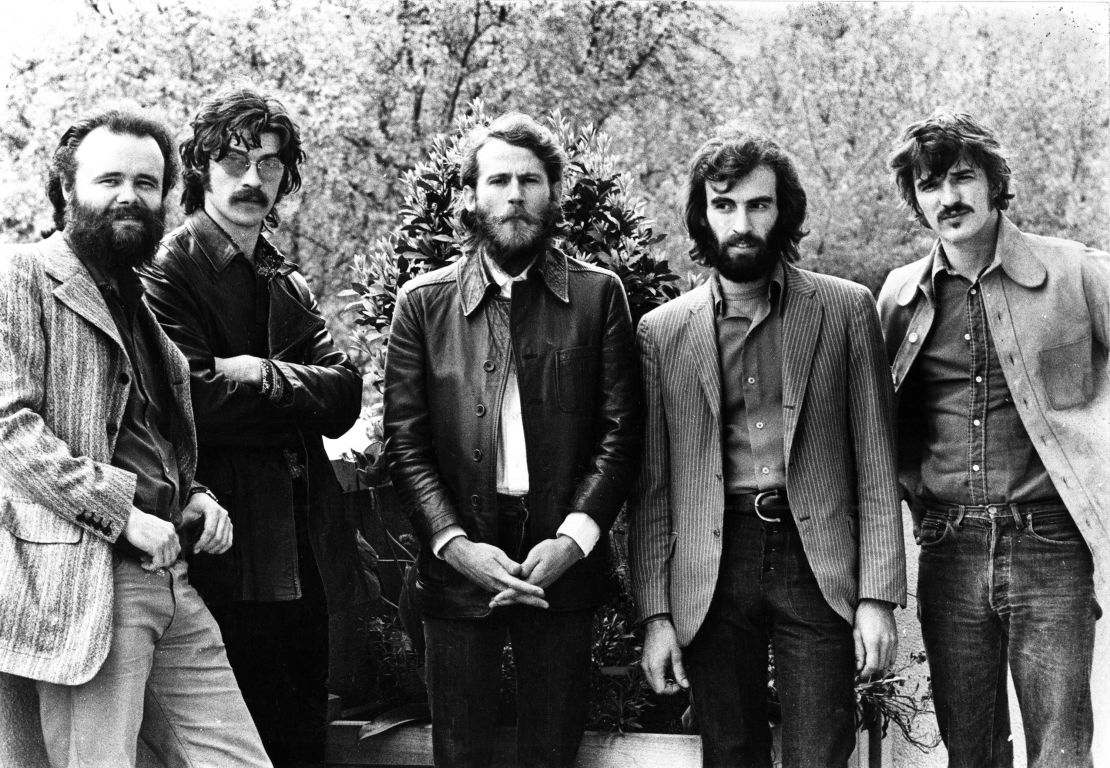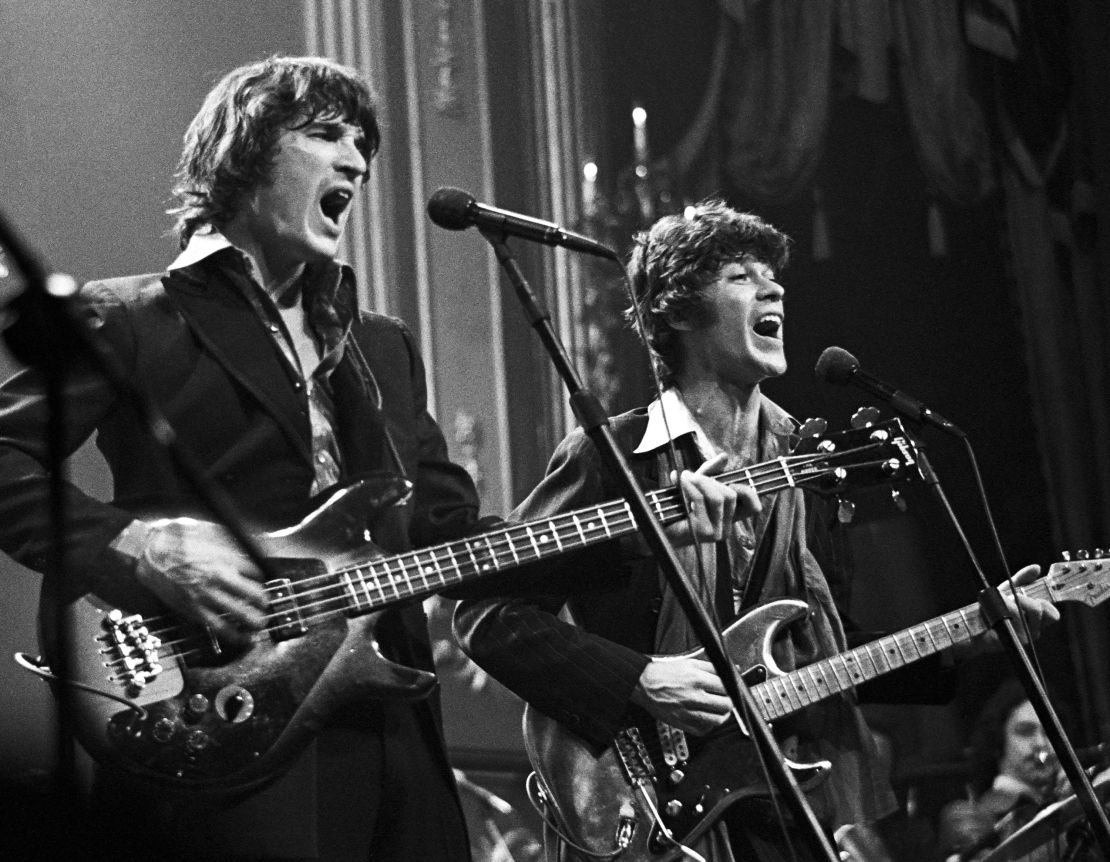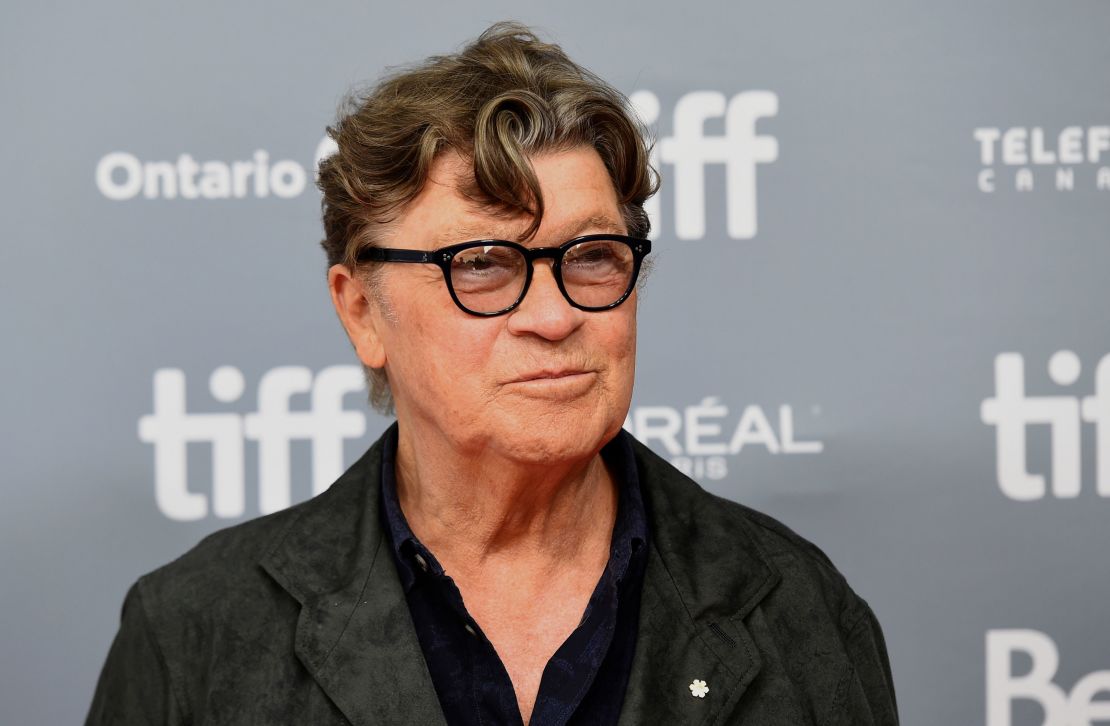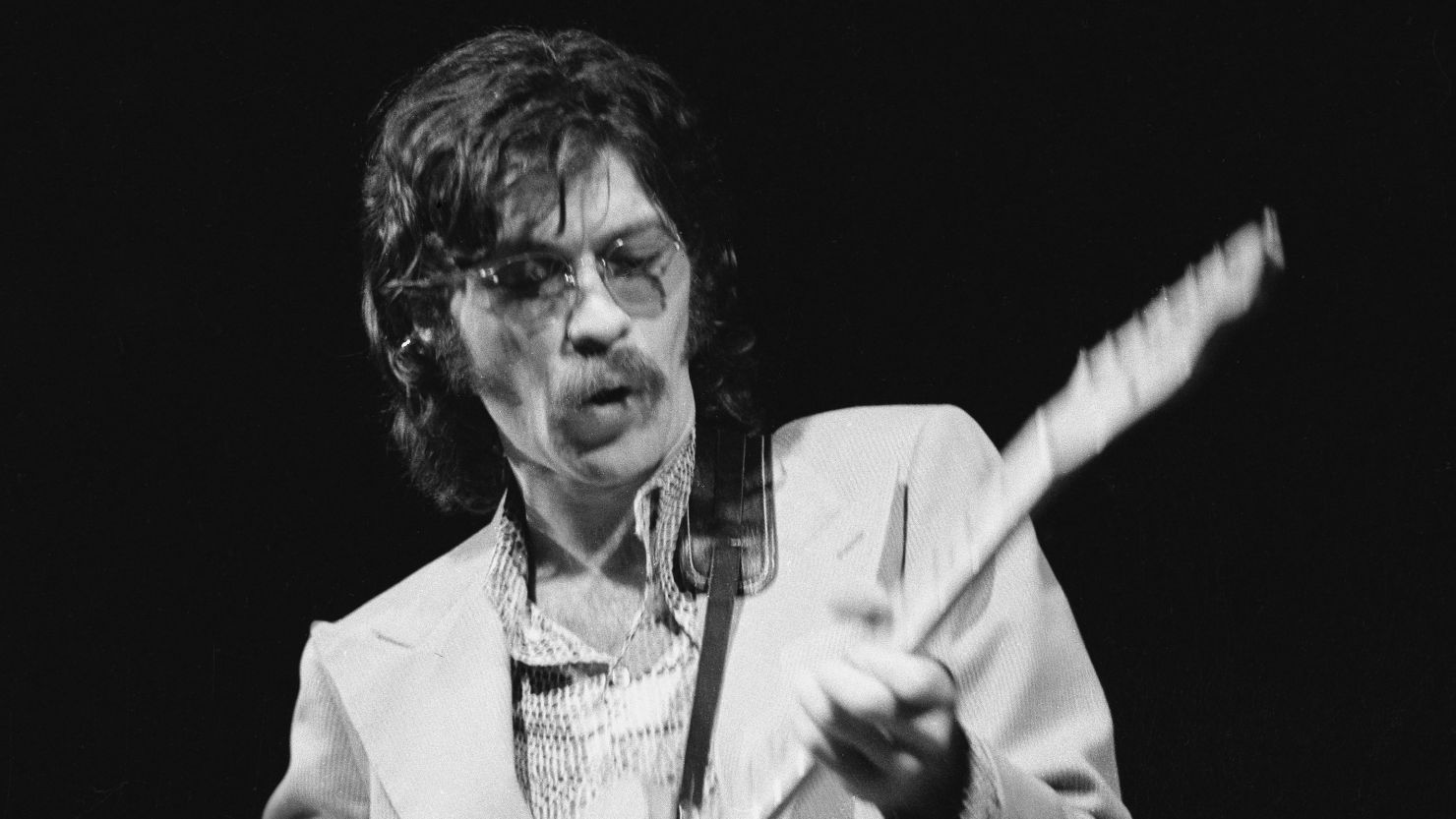Robbie Robertson, five-time Grammy nominee and celebrated songwriter, singer, guitarist and film composer, has died, according to an announcement sent from his publicity agency Costa Communications, Inc. to CNN. He was 80 and died after a long illness.
In a statement, Robertson’s manager of 34 years, Jared Levine, said “Robbie was surrounded by his family at the time of his death, including his wife, Janet, his ex-wife, Dominique, her partner Nicholas, and his children Alexandra, Sebastian, Delphine, and Delphine’s partner Kenny. He is also survived by his grandchildren Angelica, Donovan, Dominic, Gabriel, and Seraphina. Robertson recently completed his fourteenth film music project with frequent collaborator Martin Scorsese, ‘Killers of the Flower Moon.’”
Born in Toronto, Ontario, Robertson had roots in both the Mohawk community at the Six Nations Reserve, as well as the Jewish enclave of his home city’s downtown.

He began playing guitar at the age of 10, and six years later joined drummer Levon Helm in the Hawks, the backing band for rockabilly star Ronnie Hawkins. It was there that Robertson received his rock ‘n’ roll education, which would eventually include future bandmates Rick Danko, Richard Manuel, and Garth Hudson.
Robertson would go on to play with Bob Dylan on his legendary “Going Electric” tours in 1965 and 1966.
Moving to Woodstock in 1967, Robertson and his bandmates recorded the groundbreaking “basement tapes” with Dylan before changing their name to The Band and releasing their seminal “Music from Big Pink” album the following year. The album, featuring the Robertson-penned classic song “The Weight,” is still considered an inflection point in rock history.
In 1969, The Band performed at the legendary Woodstock Festival before releasing an eponymous album that included the Robertson-composed “Up On Cripple Creek” and equally classic (and much covered) “The Night They Drove Old Dixie Down.”
As a testament to their newfound fame, The Band became the first North American rock group to appear on the cover of Time magazine.
More albums followed, including “Stage Fright” in 1970, “Cahoots” the following year which included “Life Is A Carnival,” and the double live set “Rock Of Ages” in 1972.”
The next year, The Band performed before what became the largest rock concert audience in history with an estimated 650,000 people at the Watkins Glen Festival in New York.
In 1976, The Band bade farewell to live performing with “The Last Waltz” concert on Thanksgiving night. Guests including Dylan, Eric Clapton, Muddy Waters, Van Morrison, Neil Young and Joni Mitchell joined the group at San Francisco’s Winterland and the concert film, directed by Martin Scorsese, as well as a three-record box were released in 1978.

The Band’s seventh and final studio album with Robertson was “Islands,” which was released in 1977. He then produced Neil Diamond’s “Love At The Greek” live album, furthering their creative relationship as Robertson had helmed Diamond’s “Beautiful Noise” the year before.
Robertson also blazed trails as one of the first rock ‘n’ rollers to seriously engage in movie music.
He co-wrote, produced, appeared in and composed the source music for the 1979 film “Carny” starring Gary Busey and Jodie Foster. He would go on to create and produce music for Scorsese’s “Raging Bull” (1980), “King Of Comedy” (1983), and “The Color Of Money “(1986), which included “It’s In The Way That You Use It,” co-written with Clapton.
Robertson made his solo album debut in 1987 with his self-titled album, featuring guests Peter Gabriel and U2.
The album included the track “Somewhere Down The Crazy River,” and was certified gold, Grammy-nominated, and earned several Juno Awards in his native Canada.
His second solo album, 1991’a “Storyville,” featured some of New Orleans’ most respected musicians and earned two Grammy nominations.
In 1994, The Band was inducted into the Rock and Roll Hall of Fame and performed live at the ceremony.
Robertson continued his movie work, scoring Barry Levinson’s “Jimmy Hollywood” and acting in “The Crossing Guard,” starring Jack Nicholson and directed by Sean Penn. He also produced the soundtrack album for Scorsese’s “Casino.”
The artist continued releasing solo music, and penned the New York Times bestselling memoir, “Testimony,” in 2016.
A documentary feature film based on the book and titled “Once Were Brothers: Robbie Robertson And The Band” premiered at 2019’s Toronto International Film Festival and streamed on Hulu.
In 2019, Robertson released his sixth solo studio album “Sinematic,” and his work with Scorsese continued with his original score for the film “The Irishman.”

At the time of his passing, Robertson was writing his followup memoir to “Testimony,” and had just finished scoring Scorsese’s “Flower Moon” starring Leonardo DiCaprio and Robert DeNiro, which is set to hit theaters in the fall.
In an emailed statement sent to CNN later on Wednesday, Scorsese, Robertson’s 14-time collaborator, called him “one of my closest friends, a constant in my life and my work.”
“I could always go to him as a confidante. A collaborator. An advisor. I tried to be the same for him,” the filmmaker continued. “Long before we ever met, his music played a central role in my life—me and millions and millions of other people all over this world. The Band’s music, and Robbie’s own later solo music, seemed to come from the deepest place at the heart of this continent, its traditions and tragedies and joys.”
“It goes without saying that he was a giant, that his effect on the art form was profound and lasting,” Scorsese added.
In lieu of flowers, the family has asked that donations be made to the Six Nations of the Grand River to support a new Woodland Cultural Centre.




